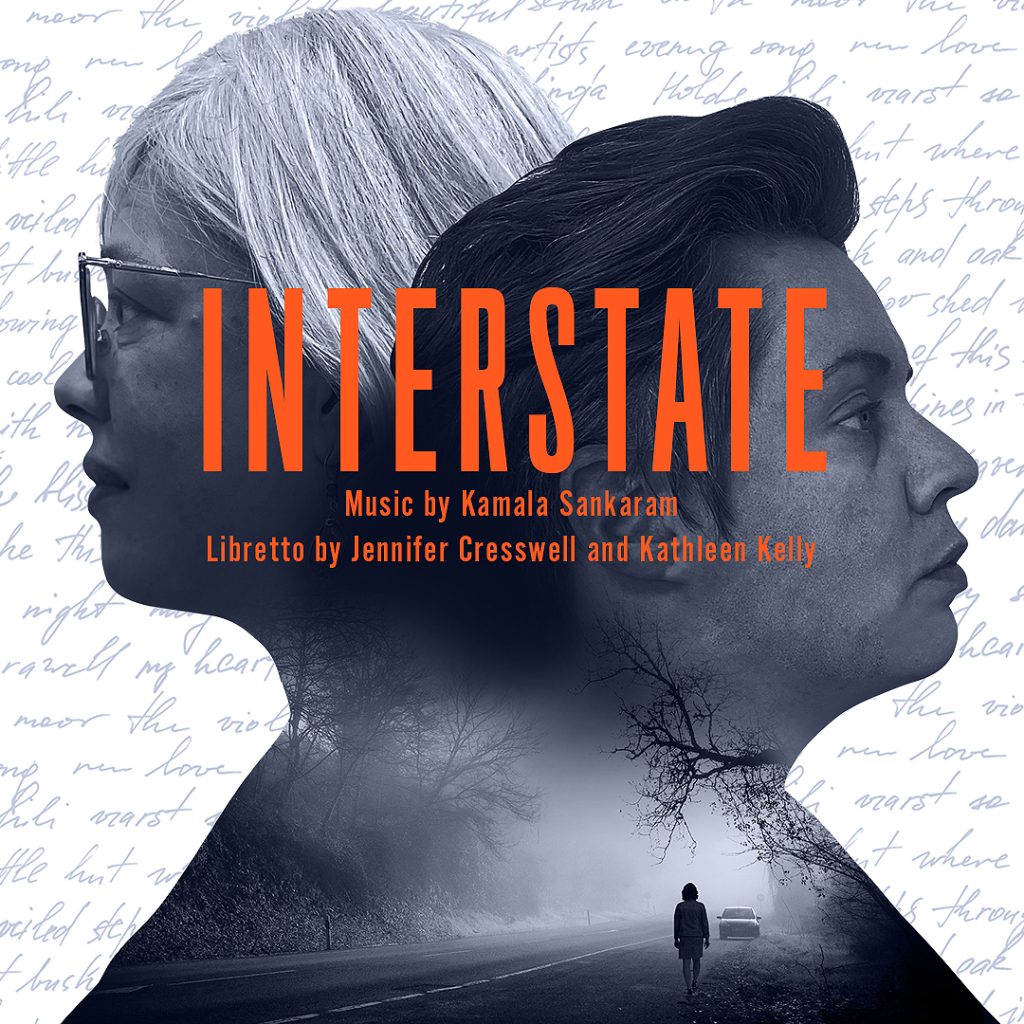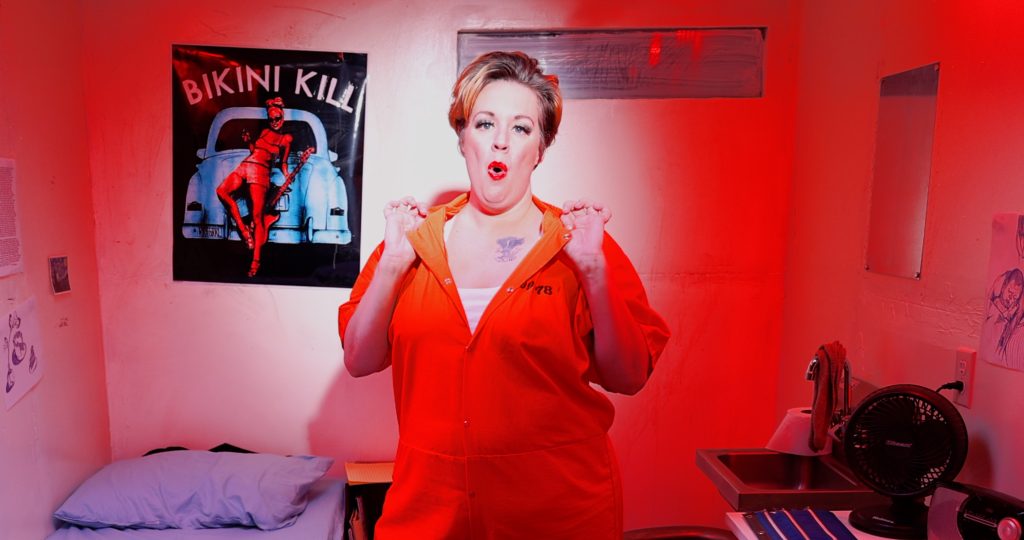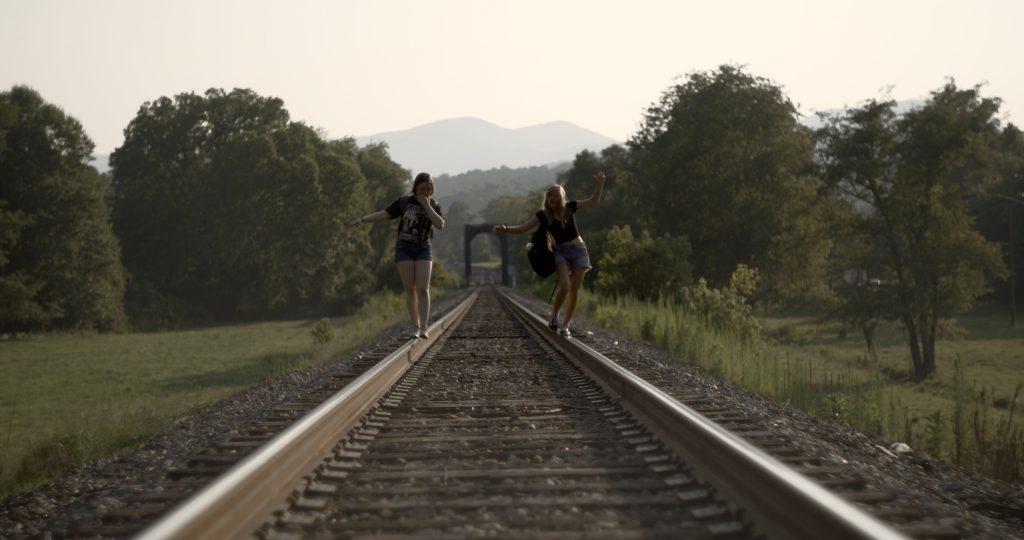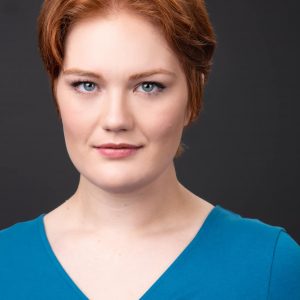By Michaela Wright, Special to the Sybaritic Singer
Content Warning: Death, Sexual Assault
Minnesota Opera’s recent production, “Interstate” is far from the traditional, repertory canon that opera-goers have come to expect. Innovative, refreshing, and thought-provoking, it beckons opera into a new cinematic age while maintaining the intimacy of an in-person performance.
Why did she do it? The question both asked and answered in Minnesota Opera’s recent project, “Interstate.” Inspired by the story of “America’s first female serial killer” Aileen Wournos and her incarcerated correspondences with an old friend, the opera centers on the relationship between two women with a sister-like bond who recount their shared childhood experiences and traumas. The women, Olivia and Diane clung to each other in adolescence to escape the domestic atrocities they faced, but ultimately went on to lead starkly different lives. Olivia endured a chain of sexual assaults which led her to isolation from everything she knew. She became a sex worker, which gave her an outlet for her anger, pain, and… murdering her clients. In this way she reclaimed her power as a “goddamn queen,” a power she only previously felt in the presence of her friend, Diane. Diane’s roots were similar but she found a much more stable and idyllic existence with a seemingly adequate husband and an extraordinarily normal life of motherhood completely free from the entanglements of her friend, Olivia.
The opera is an exploration of empathy, a piece of art that leaves the audience reasoning with themselves
“Interstate” is a reconciliation, clarification, and complication of the two ladies’ friendship. A seemingly happy Diane finds that her lack of interference on her friend’s behalf may be partially to blame for the loss of both Olivia and her victims’ lives. Upon wrestling with this thought, Diane continues to correspond with Diane hoping to acquit herself of any guilt, but life is not so black and white. By seeing Olivia through Diane’s eyes, we start to see Olivia as a child that never had a childhood and also a child that never grew up.

Furthermore, the opera is an exploration of empathy and a testing of its boundaries, a piece of art that leaves the audience reasoning with themselves. Are people capable of redemption? Do events define a person’s fate? Can someone be at fault for the unraveling of another simply by doing nothing? Jennifer Creswell, who portrays Olivia, and Kathleen Kelly, who portrays Diane, ask their audience to consider these questions in the libretto they co-created. Creswell states that the opera is founded on “the social dilemma of when to further extend a hand, and when to walk away.” For Kelly, it’s the fact that “we all fail to imagine that we might be the small handhold stopping someone else’s fall into the abyss.” Composer, Kamala Sankaram, hopes to make a statement about “how society treats women of a certain socioeconomic status.” By choosing to frame the opera as a recalling and retelling of past events rather than sensationalizing the gory details of Olivia’s murders, the creators chose to highlight the person behind the atrocities and allow the audience space to consider the devastating and heartbreaking effects of sustained abuse.
The opera owes its vulnerability to its small cast and humble instrumentation
The women also hope to shine a light on the atrocities of human trafficking and reframe sex work in a way that opera has never seen before. With reference to opera icons Carmen, Butterfly, and Violetta, Cresswell states “the beautiful music of Puccini or Verdi makes it easy to forget just how horrific life could be for these women.”

The opera owes its vulnerability to its small cast and humble instrumentation. The piano and soundscapes that accompany the voice create space for both the audience and the performers. Although originally conceived as a stage production, the chamber opera is a perfect candidate for film. One jail cell and one living area set the scene for the correspondences. The walls surrounding the women have two distinctly different purposes but remind the audience “if one circumstance had been different, for either of these women, we could be seeing the same story… with their individual story lines having been reversed.” (Ryan Taylor, Minnesota Opera)
The music is strikingly beautiful and moving and the voices are well suited to their roles
Kelly accompanies herself on the piano, revealing her soul to her audience. Cresswell’s acting is raw but her singing is profound and unceasingly lovely which continually drives one’s empathy for Olivia. Moreover, Sankaram’s use of aleatory and Gregorian chant gives the piece a pensive overtone while also simplifying the synchronization of independently working musicians amidst a pandemic. In this way, it was the perfect project to pursue while maintaining social distance but it also had the unexpected effect of creating a collaborative process regarding the music. Releasing one’s music to be performed in the comfort of someone’s home means giving over a certain autonomy to the musicians which results in a collaboration of sorts. Luckily, Sankaram is thrilled to have others’ fingerprints on her work stating “I want to see something that is different than I might have thought it would be… I’m really excited by what other people come up with.”

The music is strikingly beautiful and moving and the voices are well suited to their roles. Cresswell’s Olivia is theatrical but sensitive and Kelly’s Diane is remorseful but complacent. The piece is truly one that can alter perceptions and reconcile biases. It’s incredible how two people can both write and portray something so heart rendering and poignant. I hope we can see more libretti from these two in the future and more collaboration between Sankaram and the co-librettists. What they were able to create with director Tonya McKinny and cinematographer Ryan McKinny was nothing short of transformational.

Michaela Wright is an Orlando-based Lyric Mezzo-Soprano with special interests in musicology and linguistics. She holds two degrees in vocal performance, one from Jacksonville University and the other from University of Illinois at Urbana-Champaign. Recently, Michaela has premiered several new works by composers from New Music Collage, All Score Urbana, The Arc Project Music, and New England Conservatory’s composition program. She has also had the pleasure of singing such roles as Orfeo in Orfeo ed Euridice, The Fox in Cunning Little Vixen, and Bianca in The Rape of Lucretia. In April, Michaela will be making her European debut singing with Opernfest Prague.
